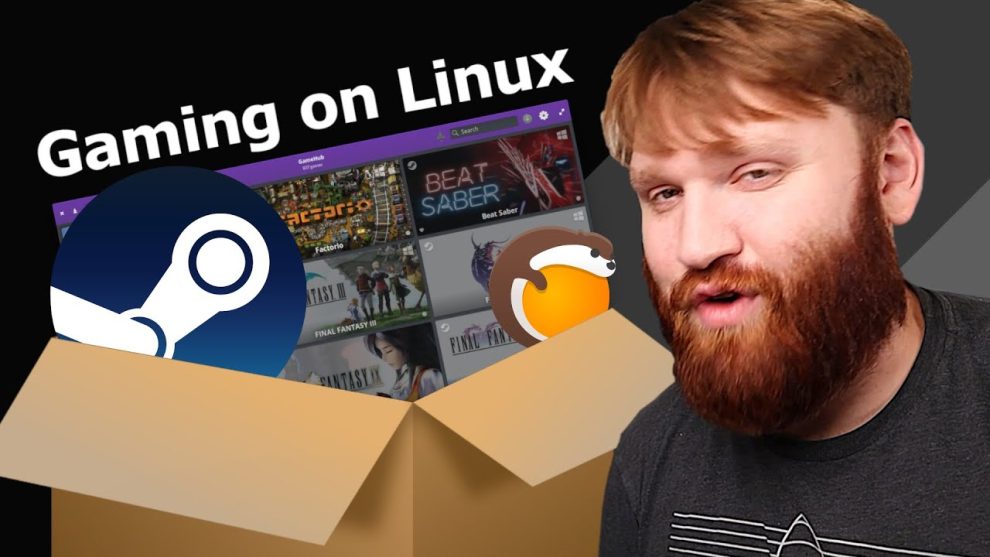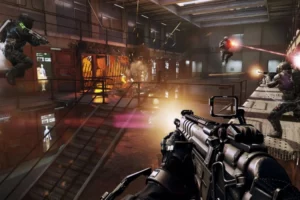For open-source enthusiasts, gaming on Linux has always been a journey full of highs and lows. Lately though, Linux gaming has made great strides towards mainstream compatibility and performance. But challenges still remain before Penguin-powered players achieve true parity with other platforms.
In this epic quest for Linux gaming glory, we’ll survey the hard-fought victories already achieved this year. We’ll also highlight lingering boss battles standing between Linux and full gaming domination. Join me as we take a candid look at the current state of play for gaming on open-source operating systems in 2023!
Recent Victories in the Realm of Linux Gaming
Like the Fellowship of the Ring gradually overcoming obstacles on the road to Mordor, Linux gaming has notched some critical victories that hint at impending mainstream success:
Steam Play’s Proton Brings Thousands of Titles to Linux
Valve’s custom Wine-based compatibility tool, Proton, has been an absolute game-changer. Integrated directly into the Linux Steam client, Proton provides out-of-the-box compatibility for thousands of Windows games.
Performance varies title-to-title, but hits like Elder Scrolls V: Skyrim, Dark Souls III, and Sekiro run flawlessly. Thanks to ongoing Proton updates, even notriously stubborn games like Apex Legends now play smoothly under Linux.
For Linux converts tired of dual-booting into Windows just to game, Proton has been a revelation. Entire libraries now open up with the click of a button, no tweaking required.
Boom in Native Linux Game Ports and Support
In addition to Windows compatibility layers like Proton, major advances have come on the native Linux gaming front in 2023. As Linux’s desktop market share grows and tools like Vulkan reduce cross-platform friction, developers are taking note.
We’ve seen a slew of impressive native Linux ports already this year. Total War: Warhammer III, Cyberpunk 2077, Marvel’s Spider-Man, and WoW: Dragonflight all launched with same-day Linux support. And with titles like The Callisto Protocol, Starfield, and Hogwarts Legacy on the horizon in 2023, the native parade marches on.

Indie darlings like Vampire Survivors, Cult of the Lamb, and Teardown have similarly embraced Linux alongside Windows and Mac in their launch platforms. With engines like Unity and Unreal Engine 4 smoothing multi-platform workflows, expect the indie Linux tide to continue rising.
Improved Hardware Support and Performance
From Nvidia’s open-sourcing of kernel modules to greatly enhanced AMD driver support, Linux gaming got a next-gen graphics boost in 2023.
For the first time, features like variable rate shading, ray tracing, and FSR upscaling are coming to Linux on day one right alongside Windows.
Combine that with general performance tuning improvements in kernel updates and compatibility layers, and Linux can actually outpace Windows frame rates in certain titles. A true rarity deserving of prestige in the Linux gaming kingdom.
Explosive Growth of the Linux Gaming Community
While the software and hardware stars align for Linux gaming, another key driving force has been the Linux gaming community itself. Sites like GamingOnLinux, subreddits like /r/Linux_Gaming, and tools like Lutris have helped this niche grow into a thriving underground movement.
These communities evangelize Linux gaming, provide vital troubleshooting advice, and curate dynamic game compatibility databases. Their spirited grassroots advocacy keeps developers aware of the demand for Linux support.
For converts intrigued by the Linux gaming promise but intimidated by the setup, these communities provide a helping hand. Their tireless efforts demonstrate the open-source ethos personified – a rising tide lifting all boats.
Remaining Challenges and Roadblocks
Like weary Hobbits reflecting on perils left to face after escaping Moria, Linux gaming still faces mighty challenges before the mission is complete. Anti-cheat woes, performance gaps in some titles, andspotty support from major publishers all remain as imposing adversaries:
Incompatible Anti-Cheat Software
For competitive multiplayer titles, anti-cheat software is critical to maintaining integrity. Unfortunately, many popular anti-cheat programs still don’t support Linux. This creates frustrating roadblocks for Linux gamers.
Destiny 2’s BattlEye, Apex Legend’s Easy Anti-Cheat, and Rainbow Six Seige’s kernel-level anti-cheat all still block play for Linux users. Despite valiant efforts by Valve and the community, progress convincing developers to address incompatibilities remains slow.
With anti-cheat being integral for so many major online titles today, its stubborn resistance to Linux continues hampering adoption. But with SteamOS incentivizing compatibility improvements, there is hope barriers slowly lower over time.
Performance Still Lags in Some Windows-First Titles
Thanks to massive leaps in Proton and Vulkan performance, many titles actually run faster on Linux than Windows now. However, for some games – especially those utilizing DirectX 12 – frame rates still fall behind Windows builds.
There will always be trade-offs when utilizing translation layers like Proton versus native Windows builds. While Wine and DXVK continue advancing in leaps and bounds, the overhead still causes performance gaps in tile-intensive games like Assassin’s Creed Valhalla or Forza Horizon 5.
Plus Nvidia still doesn’t officially support Wayland, so GPU-accelerated tasks fallback to the CPU. And OpenGL games translated through Proton take a inherent performance hit compared to Vulkan. Progress is being made, but workarounds still cost frames.
Hesitancy Among Major Publishers
Thanks to middleware like Unreal and Unity smoothing development, more studios are embracing multi-platform launches inclusive of Linux. However some tentpole developers like Activision Blizzard and Take Two still keep Linux at arm’s length.
Their games either lack Linux clients outright, or Linux support comes months after Windows updates. And projects based on internal engines, like EA’s Frostbite engine, grapple with modifying their entrenched technology stacks.
While Linux gaming momentum builds, convincing these cornerstone developers to fully buy in remains an ongoing struggle. But economic incentives presented by the Steam Deck could gradually turn the tide in Linux’s favor.
Newcomer Discoverability Hurdles
For those new to Linux gaming, navigating this complex compatibility landscape proves daunting. Understanding whether titles work natively vs. through Proton, picking compatible hardware, diagnosing performance issues – it’s a trial by fire.
Resources exist like the community-curated site ProtonDB rating Steam game compatibility. However, the Linux gaming experience still requires more tinkering sophistication compared to the plug-and-play familiarity of Windows and Mac.
As tools improve and documentation expands this onboarding curve will flatten, but discoverability hurdles persist. Thankfully the passionate Linux gaming community stands ready to guide newcomers towards Valhalla.
The Winds of Change Blow Favorably for Linux Gaming
Despite these challenges, when reflecting upon the Linux gaming landscape the positives clearly outweigh the negatives. With ever-advancing compatibility tech, swelling community momentum, and the economic gravity of Steam Deck, Linux gaming’s future looks bright.
Developers increasingly realize Linux gaming is both technically viable and economically sensible given SteamOS’s growth. Tools continue maturing to quicken multi-platform game development while reducing friction.
And with each new title launched inclusive of Linux, each performance milestone achieved, and each compatibility barrier overcome, momentum accelerates. The snowball effect steams towards critical mass each year, making the question not if but when Linux gaming achieves parity.
To Linux Gamers – Adventure On!
For Linux gaming pioneers willing to endure a few lingering technical trials, take heart. The promised land inches closer thanks to your passion and advocacy. With each troubleshooting forum post, compatibility tweak, and Steam Play test, this movement gains momentum.
Continue supporting developers who champion multi-platform support, shaping community discourse, and spreading the Linux gaming gospel to curious converts. The open-source gaming future grows brighter thanks to your efforts.
From the maker community crafting custom Linux handhelds to programmers sharpening their Vulkan skills – you are the fellowship carrying Linux gaming towards mainstream glory. Onwards penguin soldiers – adventure on towards victory!
















Add Comment